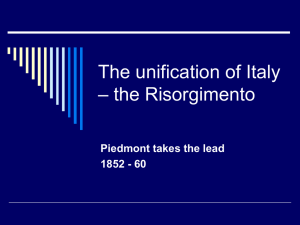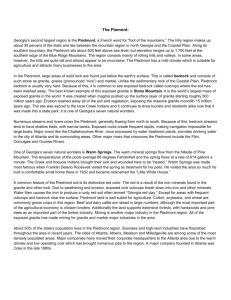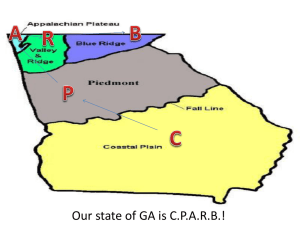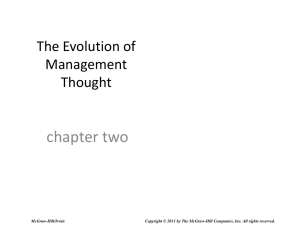Presentation Migliore
advertisement
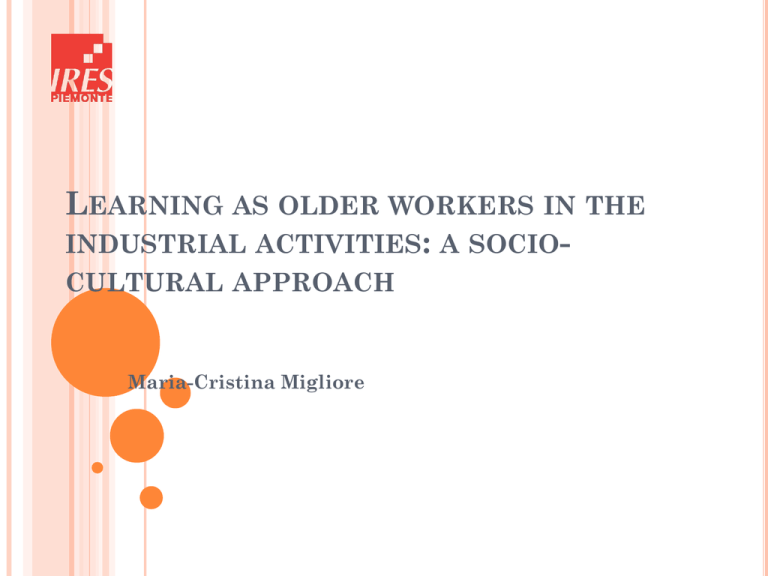
LEARNING AS OLDER WORKERS IN THE INDUSTRIAL ACTIVITIES: A SOCIOCULTURAL APPROACH Maria-Cristina Migliore RESEARCH OBJECTIVES Explaining why older workers do not participate in vocational learning Contesting the individualistic view of vocational learning in the European Union’s perspective Discussing how motives for learning can be seen as related to workplace with a socio-cultural perspective Ires-Piemonte (Institute for Economic and Social Research of Piedmont) 2 THE EUROPEAN UNION’S CONCEPTUALIZATION OF LEARNING Definition based on the setting: informal, nonformal and formal learning Extended to include couching and counselling Development of competences Little mention of the key issue of motivation: why people should participate to LLL? Motivation is mentioned in the key competence of “learning to learn”. It is not clear how motivation develops. Learning is seen as an individual endeavour. Ires-Piemonte (Institute for Economic and Social Research of Piedmont) 3 THEORETICAL FRAMEWORK • • • • Ires-Piemonte (Institute for Economic and Social Research of Piedmont) • Cultural historical activity theory (CHAT): a materialistic approach developed by Vygotsky and Leontiev. Learning is a cultural and social process of mastering and internalizing/externalizing symbolic and material artefacts, in carrying out activities with other individuals The centrality of the object-oriented activity in our relation with the world: every activity, in the mind and world, finds its origin in a motive/object and it is directed by this The participation in collective activities generates the subjectivity (hierarchy of motives) The motive for learning is related to the engagement in an object-oriented activity. Engagement = correspondence between personal sense of motives and activity motives. 4 WHO ARE THE OLDER WORKERS I refuse the model of cognitive decline as neglecting contextual and historical aspects I refuse standard social-psychological and organizational models which conceptualize contexts as external dimensions to the subjects I accept the contribution from the educational gerontology: a) which points out the dis-homogeneity of the population of older people b) which refers to the process of growing older as a process of making sense of their past life experiences as an element to interpret their engagement with the present (Moody 1990). Ires-Piemonte (Institute for Economic and Social Research of Piedmont) 5 STRATEGIES OF PRODUCTION • • Ires-Piemonte (Institute for Economic and Social Research of Piedmont) • If object-oriented activity is pivotal, then it is necessary to elaborate more what workplaces are nowadays. In the sociological literature: different strategies of production with related different ways of working. Mass production, flexible specialization, lean production, customization, … 6 WORKPLACE ORGANIZATIONS: DIFFERENT DEGREES OF AUTONOMY Strategies of production Relation between conception and Typology execution Craft Process enhancement Co-configuration Type 1 (more potentially engaging Conception&Execution tasks) Pragmatic collaborations Mass production Flexible mass production Modular systems Ires-Piemonte (Institute for Economic and Social Research of Piedmont) Flexible specialization Type 2 (less potentially engaging Conception#Execution tasks) 7 RESEARCH QUESTIONS AND DESIGN How Ires-Piemonte (Institute for Economic and Social Research of Piedmont) do strategies of production relate to older workers engagement in learning? How do their subjectivities play in engaging in learning? Two case studies in the North-West Italy: mass production and flexible specialization Discursive interviews and constant comparative method of analysis 8 FINDINGS In Ires-Piemonte (Institute for Economic and Social Research of Piedmont) the mass production. Engagement made of complaints about work and superiors. Would like to learn about parts. Subjectivity-motives: organization, quality. In the flexible specialization. Learning as an activity deeply embedded in working: coping with variability, creating tricks, enhancing processes. No need for formal vocational learning. Subjectivity-motives: being professional, autonomy, passing knowledge. 9 FINDINGS DISCUSSION (1) Ires-Piemonte (Institute for Economic and Social Research of Piedmont) What is important for older workers is related to the type of work : organization and quality in the mass production (lack); being professional and passing the knowledge in the flexible specialization (plenty). The role of the past experiences and the meaning attached to them: retrocession or difficulties in advancement in the mass production > hope in changes; continuous professional development in flexible specialization even when there had been discontinuities > preparing for retirement. 10 FINDINGS DISCUSSION (2) In the standard approach vocational learning is linked to the skills and competencies required at work. This research reveals motives for learning linked to the object of OWs’ working activity and its meaning for them. In mass production they develop needs and motives for learning, linked to their engagement and complaints in activity which has problems in the globalized context; In flexible specialization they have already developed thier professional knowledge in practice and theory. They feel as experienced workers with no problem of employability and willing to share their knowledge with colleagues. Ires-Piemonte (Institute for Economic and Social Research of Piedmont) 11 CONCLUSIONS Ires-Piemonte (Institute for Economic and Social Research of Piedmont) The richness of the workplace as source of meanings, needs and motives for learning, opportunities for workplace learning. The personal engagement of older workers in working and learning is linked to their experiences and the meanings of these latter. The European Union could enhance its strategy on learning in later life by putting more emphasis on industrial policies in the frameworks devoted to lifelong learning. It is through activities that people develop, so EU should care after the type of activities supported as a way of caring about the development of people. 12



